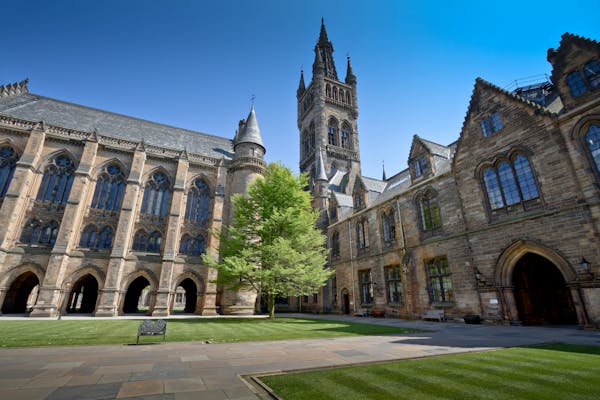In today’s world, where business and humanities often overlap in surprising ways, education plays a big part in shaping well-rounded, thoughtful, and strategic thinkers. While everyone talks a lot about STEM or business degrees when it comes to academic success, the liberal arts — especially history — are still super important for building critical thinking, research skills, and understanding context.
Among all fields of study, medieval history has always drawn in passionate learners who are intrigued by Europe’s old heritage. But when it’s time to pick the right program, one name keeps popping up: the University of Glasgow’s Medieval History Program — often called Europe’s best. It’s known for blending top-notch academics with cultural experiences and opening doors for a variety of career paths.
In this piece, we’ll look at why this program is quickly gaining a reputation as the go-to in Europe, what makes it stand out from others, and how it’s not just great for future historians, but also for future leaders in business, politics, law, and more.
A Legacy of Excellence: The University of Glasgow in Context
The University of Glasgow, founded way back in 1451, is one of the oldest and most respected schools out there. It’s got a long history of amazing scholars and historians who’ve influenced the world for centuries.
Why This Matters for Students:
- Academic credibility: A program with over 500 years of heritage.
- International network: Access to a global alumni base in academia, politics, and business.
- Rich archives: One of the best historical manuscript collections in Europe.
Choosing the University of Glasgow’s Medieval History Program: Europe’s Best is not just about getting a degree; it’s about joining a living tradition of scholarly inquiry.
The Core of the Program: What You’ll Study
The curriculum of the program has been meticulously designed to give students a robust and multi-dimensional understanding of medieval Europe.
Key Modules:
- Early Medieval Societies (400–1000)
- Medieval Kingship and Governance
- Crusades and Cultural Conflict
- Church, Religion, and Heresy
- Trade and Urbanization in the Middle Ages
- Paleography and Manuscript Studies
The program isn’t just textbook-based; it integrates hands-on learning through field visits, archive work, and digital humanities initiatives.
A Comparative Glance: How It Stands Out
To highlight the strength of the program, here’s a comparative table of some top medieval history offerings across Europe:
| University | Program Name | Year Established | International Ranking | Unique Feature |
|---|---|---|---|---|
| University of Glasgow | Medieval History Program | 1451 | Top 1% (QS/Times) | Emphasis on interdisciplinary research |
| University of Oxford | MSt in Medieval History | 1096 | Top 1% | Highly competitive, focus on Latin texts |
| University of St Andrews | MLitt in Medieval Studies | 1413 | Top 2% | Strong archaeological integration |
| University of Leiden (Netherlands) | MA in Medieval and Early Modern Studies | 1575 | Top 5% | Combines early modern history with medieval |
| University of Bologna (Italy) | MA in History and Oriental Studies | 1088 | Top 3% | Offers medieval Islamic world modules |
Among these, the University of Glasgow’s Medieval History Program shines not just for its heritage, but also for its student-centric approach and emphasis on global context.
What Makes It Europe’s Best?
Several features distinguish Glasgow’s program from its European peers.
1. Interdisciplinary Curriculum
Modern academia rewards flexibility. Glasgow’s program allows you to take elective courses from theology, art history, philosophy, and even political science, giving your degree a real-world, versatile edge.
2. Strong Research Orientation
The program encourages early participation in original research. Students frequently contribute to faculty-led projects, giving them practical exposure to historical methodologies.
3. International Collaboration
With exchange programs and joint modules from institutions like the Sorbonne, Humboldt University, and Trinity College Dublin, students engage with a pan-European academic community.
4. Career Application Beyond Academia
Many graduates transition into careers in:
- Public policy and civil service
- Heritage and museum management
- Journalism and publishing
- Diplomacy and foreign affairs
- Consulting and business strategy
Thus, the University of Glasgow’s Medieval History Program is more than an academic path — it’s a launchpad for diverse professional futures.

Cultural Immersion: Living and Learning in Glasgow
Why Glasgow?
- City of Culture: Named a UNESCO City of Music, and home to the Kelvingrove Museum and the Riverside Museum.
- Student-Friendly: Affordable compared to London, Paris, or Amsterdam.
- Historical Landscape: Gothic architecture, ancient churches, and nearby medieval ruins provide constant historical inspiration.
The city itself becomes a classroom, reinforcing the teachings of the University of Glasgow’s Medieval History Program through real-world context.
Alumni Success Stories
Let’s take a look at some real-world applications of the degree.
Fiona Mackenzie – Policy Analyst at the UK Government
“My studies in medieval history gave me an unparalleled understanding of how societies evolve, which I now apply in shaping policy. I credit the analytical training from Glasgow for my career shift from history to politics.”
Dr. Soren Claesson – Museum Curator, Stockholm
“The research skills I gained at the University of Glasgow were instrumental in curating exhibitions on medieval Nordic artifacts. The program’s focus on archival work gave me the hands-on experience I needed.”
These testimonials echo a consistent message: The University of Glasgow’s Medieval History Program prepares you for much more than academia.
Business Implications of Historical Studies
You might be wondering — what does medieval history have to do with business?
Plenty, actually.
- Pattern recognition: History helps identify social and economic cycles.
- Strategic foresight: Understanding past collapses and rises informs modern risk management.
- Communication: Historians are exceptional writers and researchers — two crucial business skills.
- Leadership: Studying governance, power, and legacy offers invaluable insights into leadership dynamics.
Therefore, a background in history, especially from a top-tier institution like Glasgow, is increasingly seen as an asset in the business world.
Admission Requirements and How to Apply
Applying to the University of Glasgow’s Medieval History Program is a structured process.
Entry Criteria:
- A bachelor’s degree (2:1 or equivalent) in history or a related field
- English proficiency (IELTS 6.5+ or equivalent)
- Academic references and a statement of purpose
Application Timeline:
| Stage | Timeline |
|---|---|
| Online Application Opens | October (prior year) |
| Deadline for Applications | May (of intake year) |
| Notifications Sent | June – July |
| Course Begins | September |
Applicants are encouraged to apply early, as slots are limited and competition is high.
Tuition, Scholarships, and Financial Support
The program is competitively priced given its global prestige. Additionally, multiple scholarship opportunities exist.
Tuition Overview:
- UK/EU Students: ~£9,500/year
- International Students: ~£20,000/year
Available Scholarships:
- College of Arts Postgraduate Scholarship
- International Excellence Scholarship
- External funding from Chevening, Fulbright, etc.
Students interested in the University of Glasgow’s Medieval History Program can often offset costs significantly with merit-based or need-based aid.
Top Tips for Success in the Program
1. Engage with Professors
Faculty are extremely approachable and encourage academic dialogue. Building these relationships enhances your learning and can lead to research opportunities.
2. Dive Into the Archives
Glasgow’s library is home to some of the oldest manuscripts in Scotland. Use these resources for unique research projects.
3. Network Across Departments
The interdisciplinary nature of the program means you’re not limited to history students. Attend lectures in theology, literature, and law to broaden your academic horizons.
Final Thoughts: Is It the Right Fit?
If you love digging into history, enjoy in-depth academic research, and want a degree that actually hooks you up with real-world skills, then the University of Glasgow’s Medieval History Program: Europe’s Best might be exactly what you’re looking for.
This isn’t just about hitting the books — it’s a chance to really grow your knowledge, see things from new perspectives, and build skills that matter across different fields. Whether you want to go into teaching, business, law, or public service, this degree gives you the tools to thrive and stand out.
FAQs
Q1: Can non-history graduates apply?
Yes, if you have a related background in humanities or social sciences and a strong academic record, you may be eligible.
Q2: What are the career options after graduating?
Alumni have gone on to roles in museums, government, education, consulting, and international development.
Q3: Is the program suitable for international students?
Absolutely. Glasgow has a vibrant international community and offers strong support for global learners.
